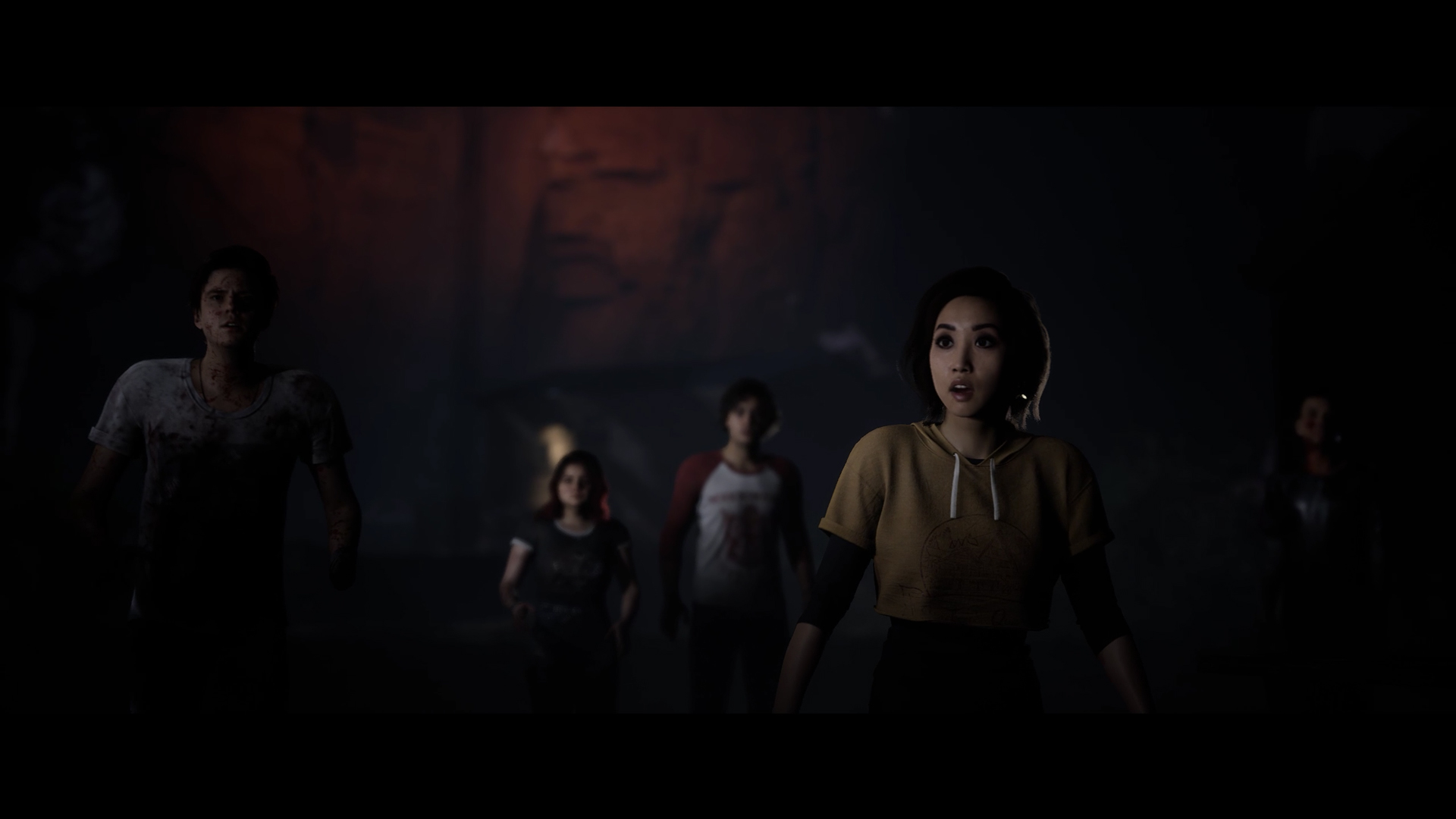
The Quarry is a love letter to horror. Perhaps that sounds obvious – after all, The Quarry is firmly rooted in the survival horror genre. But if you sit down to play the game following its release, attempting to guide nine camp counselors through an unpredictable night of terror, you'll soon realise that The Quarry pays careful homage to the genre greats that have come before it.
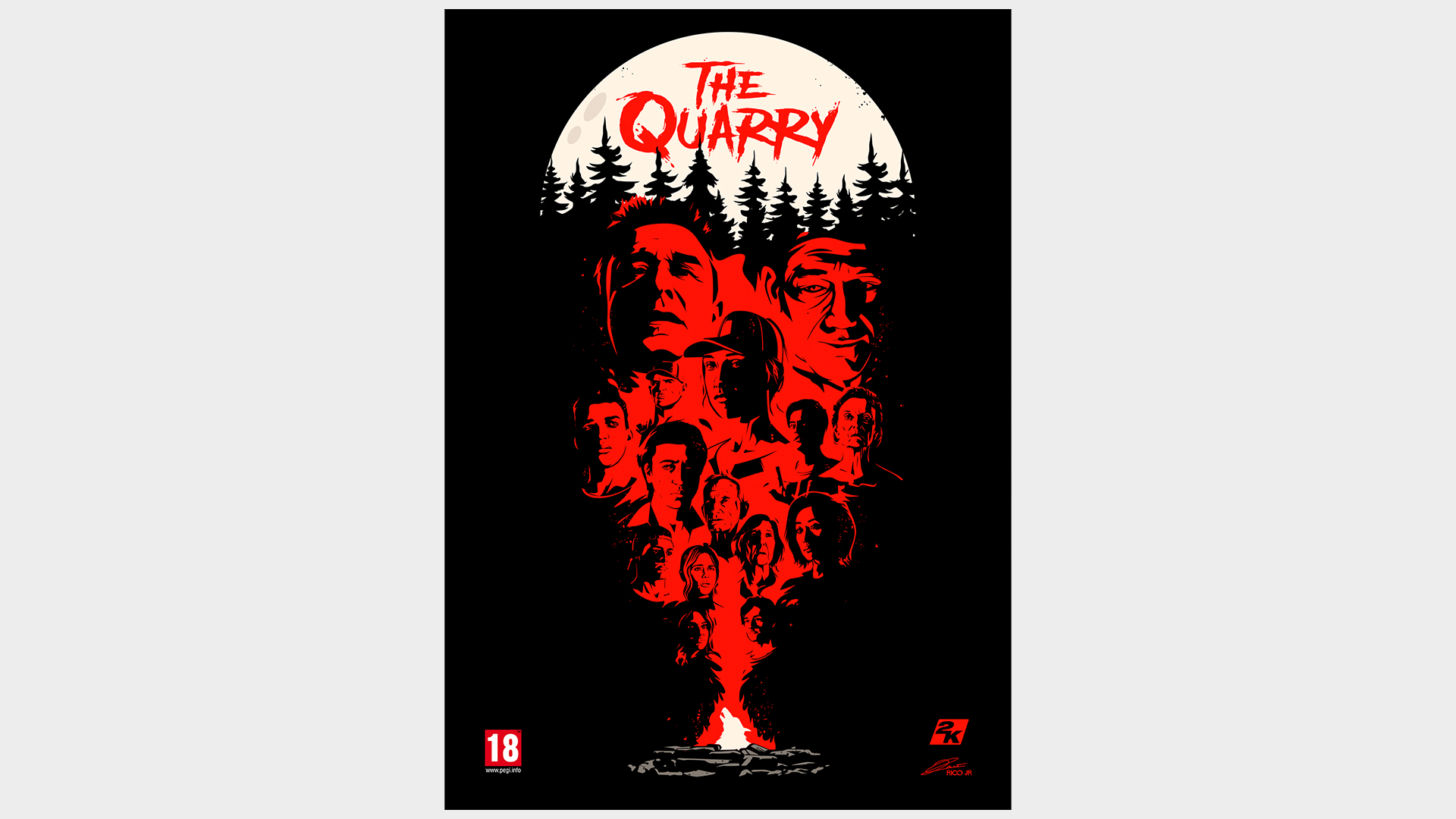
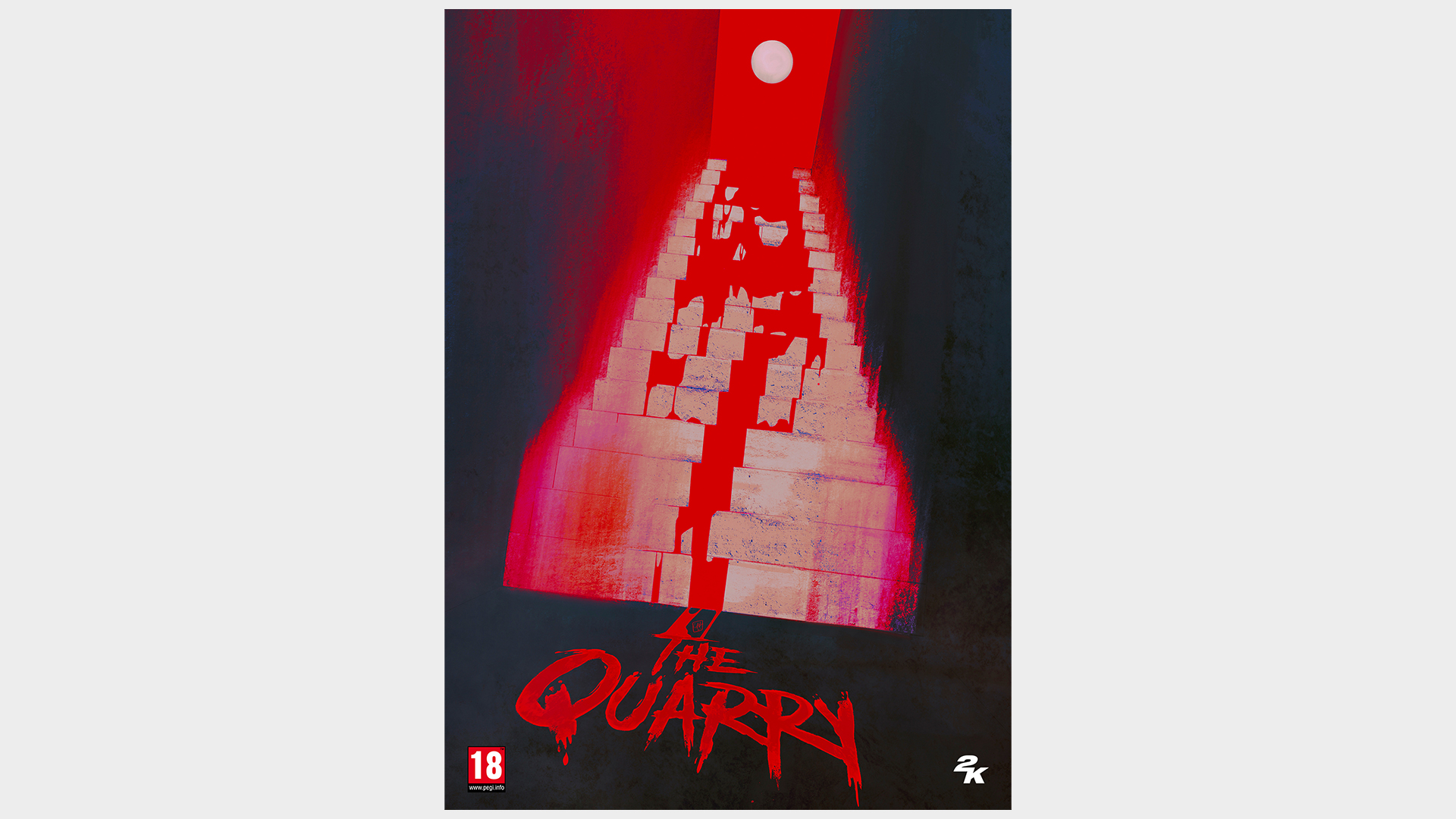
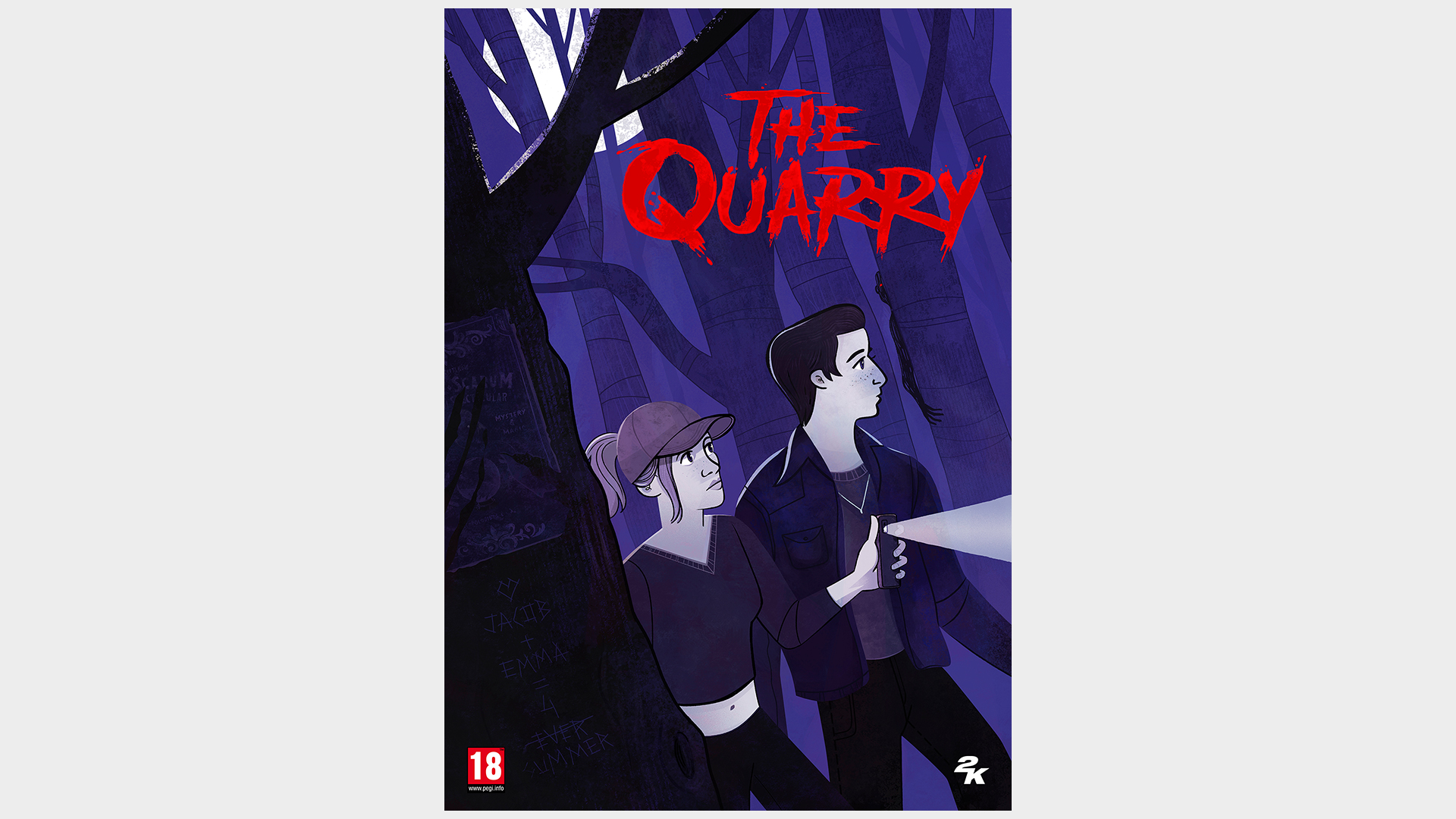
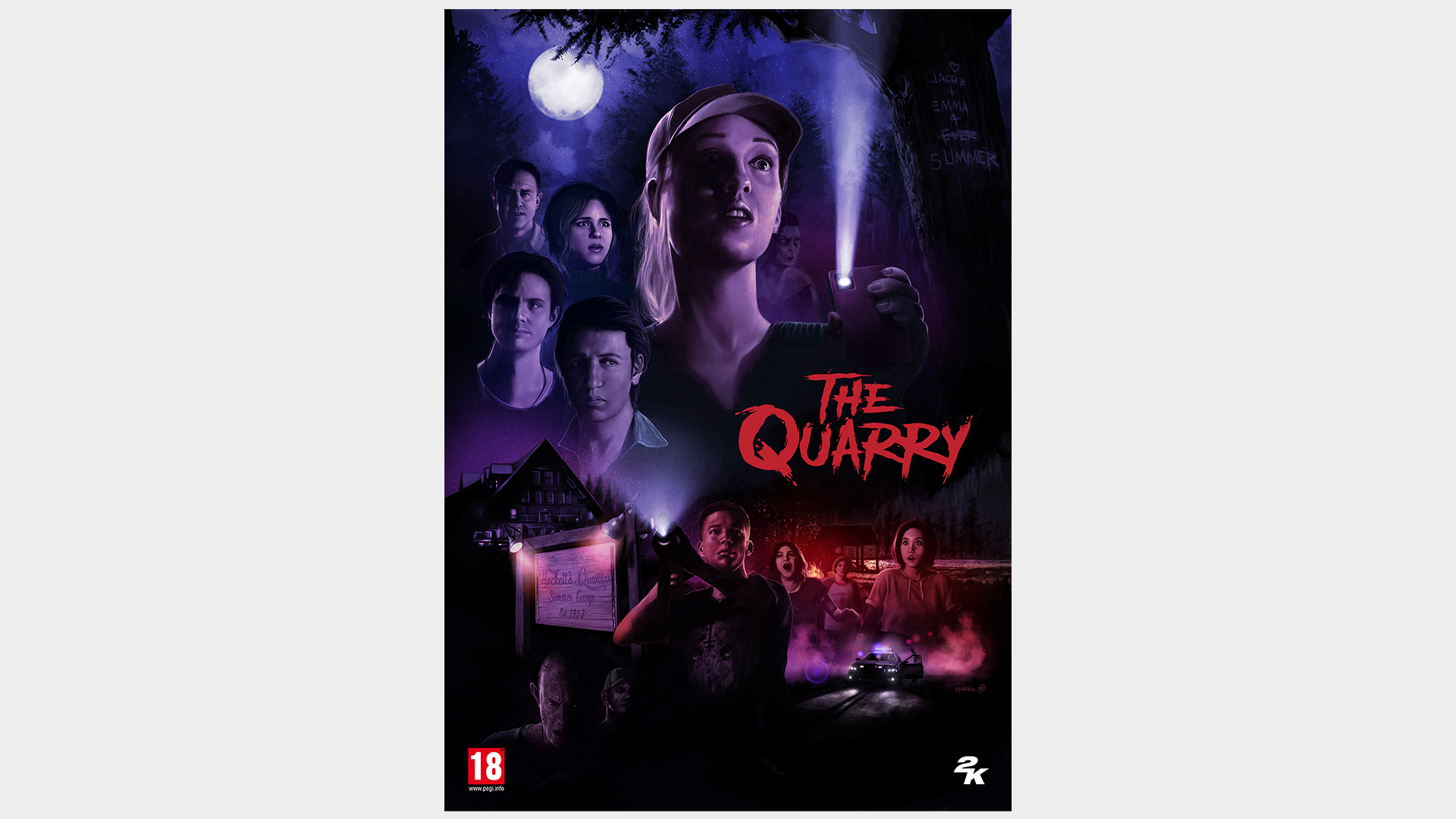
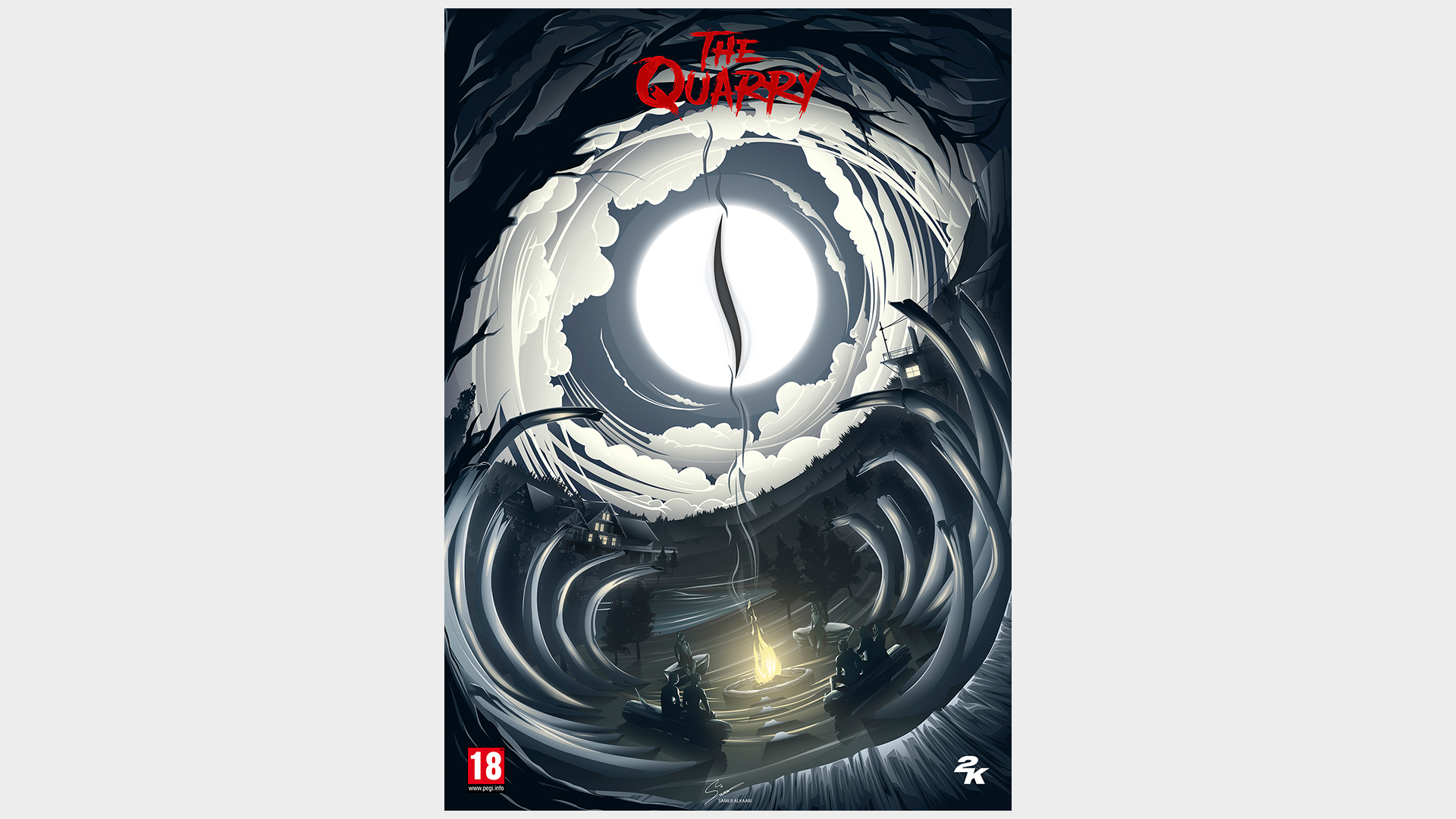
That's also true of the five unique posters GamesRadar+ is able to give away to one lucky winner. 2K Games and Posterspy teamed up to commission five artists to produce five awesome posters that capture the spirit of The Quarry, and render it out in a style that echoes some of the best horror movies of all time. We've got the five posters to give away to one lucky winner, and all you need to do to be in with a chance to get your hands on them is get involved with this tweet and answer the following question: What horror movie are you going to watch once you've completed The Quarry?
And that's it! You'll be entered into a prize draw, and on June 30 we'll select a winner. It's as simple as that. The posters themselves are from artists Julien Rico, Dave Merrell, Maria Ku, Conor Fenner-Toora, and Samer Al Kaabi.
What horror movie are you going to watch once you've completed The Quarry? Let us know by following GamesRadar+ and replying to this tweet to be in with a chance of winning FIVE Quarry posters inspired by classic horror movies from @PosterSpy (Competition closes June 30, 2022) pic.twitter.com/3lSdnzNHGBJune 10, 2022
If you need a little help deciding what to watch after you've completed The Quarry – or to get in the mood for its particular brand of '80s and '90s inspired horror – we went straight to the source: Will Byles. We spoke to The Quarry's game director about the classic horror movies that most inspired this new adventure – Warning: it's a roadmap to a sleepless night.
Scream (1996)
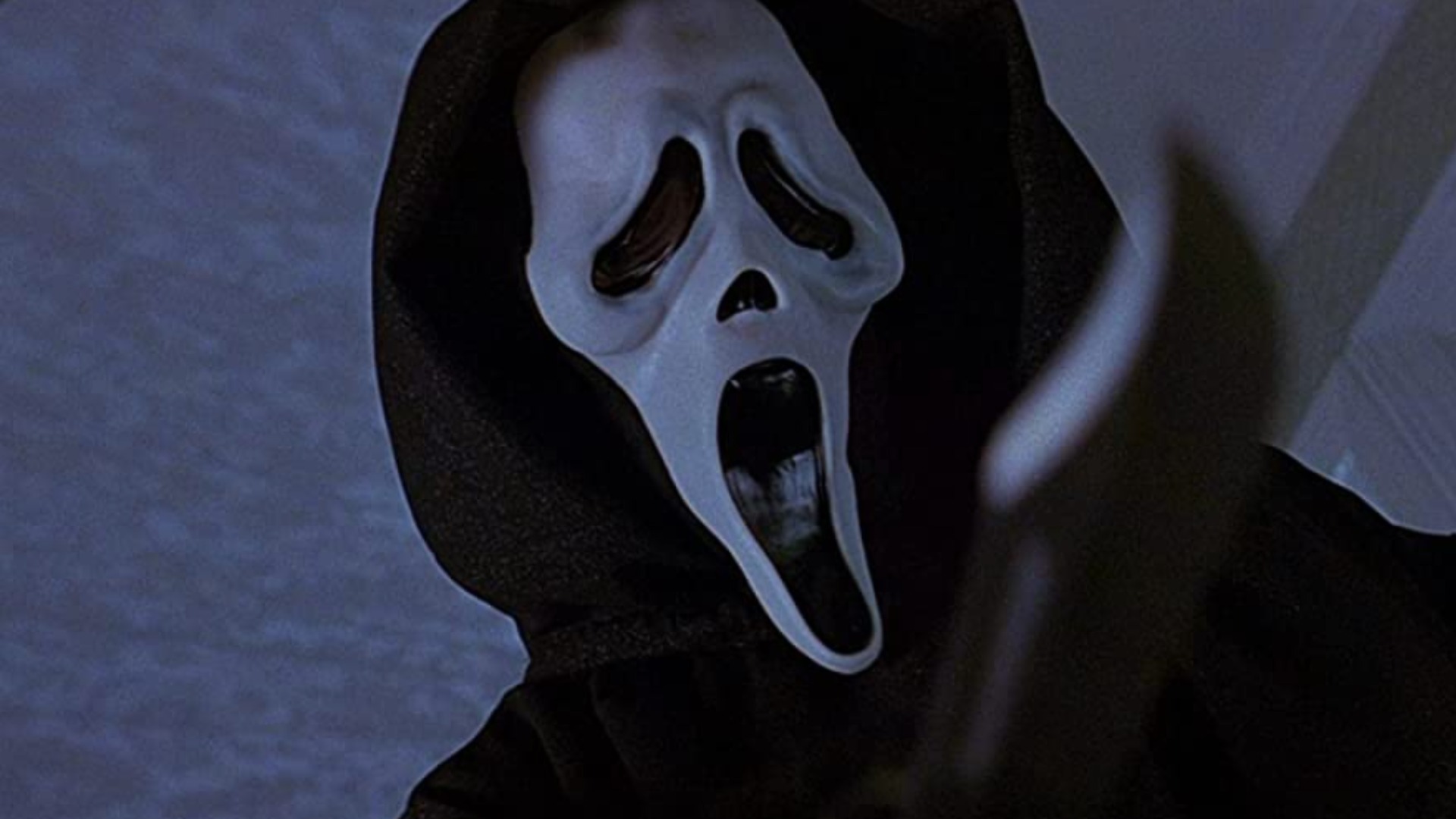
"Scream was really the first, without sounding overly wanky, proper kind of postmodern self-referential film in that genre that came out. It was brilliant in a lot of ways. And we quite sort of unashamedly stole quite a lot from that. And it wasn't that we stole specific ideas, it was just that you can't go back to before Scream. You can't make horror films from before Scream because all of that stuff is now out in the open. Everyone understands the rule sets. Everyone knows all the bits and pieces that come from that. And so we made a really big point of going, 'okay, well, if we're going to do horror, we have to do Scream and post-Scream. And, in fact, we should really lean into that."
"We're really cautious about how we handle choices in our games. Very few, if any, are arbitrary. Bearing in mind, you should understand horror – these choices will be based on the fact that if you understand it, you can make a choice that's more appropriate to the horror outcome that you think might happen, not necessarily the best outcome."
Psycho
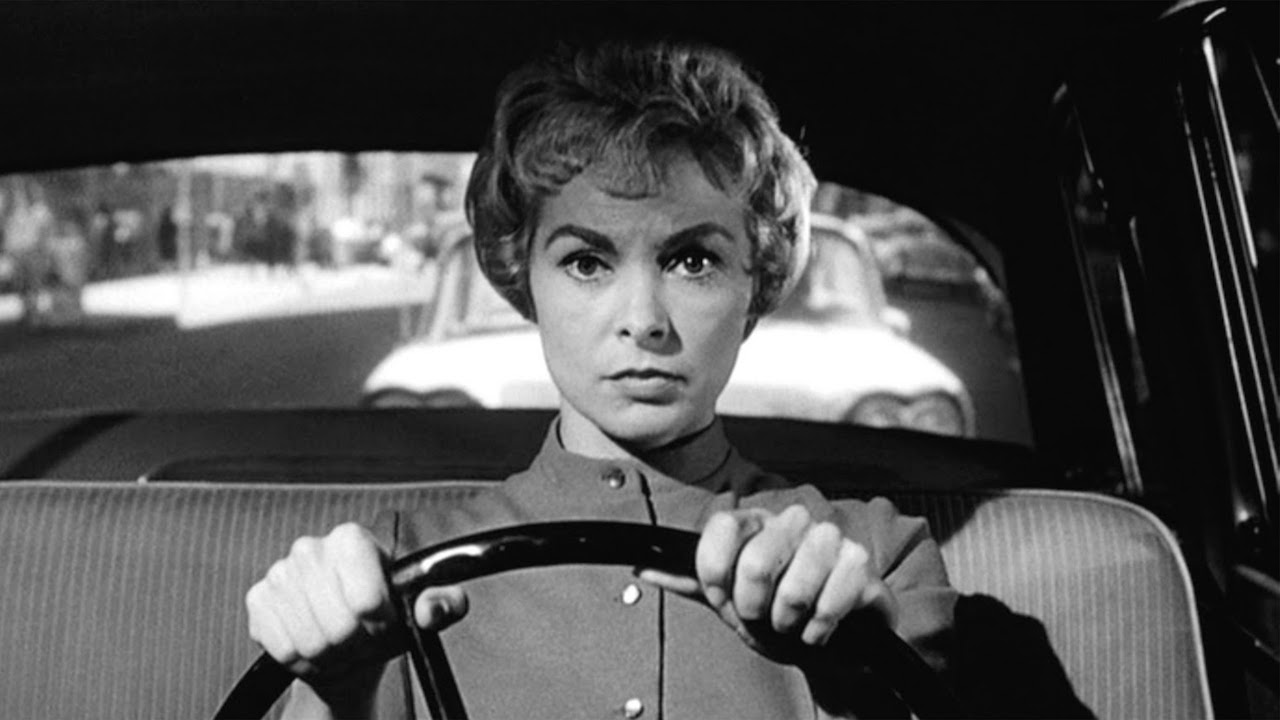
"To be really honest, a lot of what we do goes right back to Psycho. When Alfred Hitchcock gets Janet Lee killed right near the beginning of the film – no one believed you could do that with a star! And of course, they did that in Scream as well – they got a really good star in there, answering the phone right at the beginning of the film, and then she's dead within five minutes. And it's like, 'oh my god, that was such a shock!'
Sign up to the GamesRadar+ Newsletter
Weekly digests, tales from the communities you love, and more
"We wanted to have characters in The Quarry that you could really, really like… and then they could get killed and it's like, well, you can't go back and save them – they're dead, and you have to move on. That was a really, really important thing, because it's really shocking. I think people forget how much of a shock that was in Scream, and it was certainly massive in Psycho; everyone told Hitchcock that killing off a star so near the beginning was the worst thing you could ever do. It was considered a huge mistake, but it was really impactful on the audience."
Friday the 13th
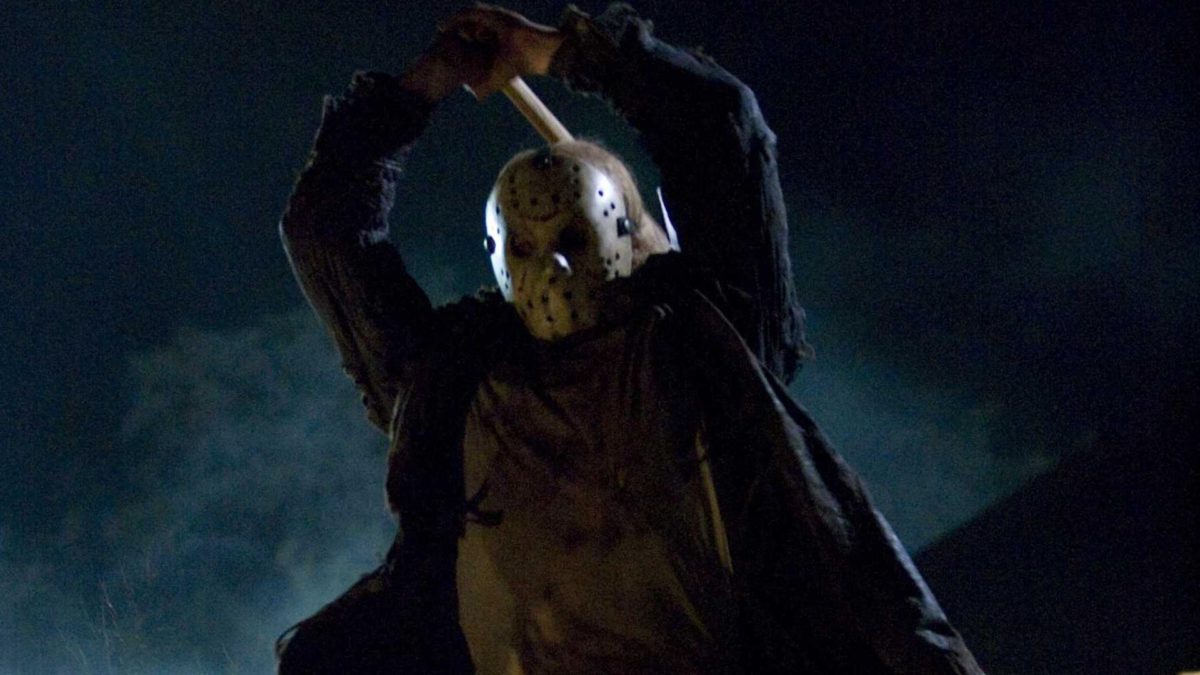
"Friday the 13th and Halloween really kicked off the slasher film genre. We really leaned into that when we did Until Dawn. We stuck to those themes pretty tightly – with the teen characters, the dialogue, the very primary-colored character stereotypes. When we started working on The Quarry, we asked ourselves: okay, how would we turn it up to a level? Okay, let's go to a summer camp. You know, go into the woods – that's what they call a 'hick flick' now, or 'Kill Billy'.
"So we really pushed The Quarry down those avenues – the summer camp, let's make it on a lake. If you go back to Friday the 13th, the original one, you don't have the actual hockey mask thing in that at all at that stage. So you're really still talking about this story of discovery; it's still a Who Done It of sorts, more than the standard horror which it is now."
An American Werewolf In London
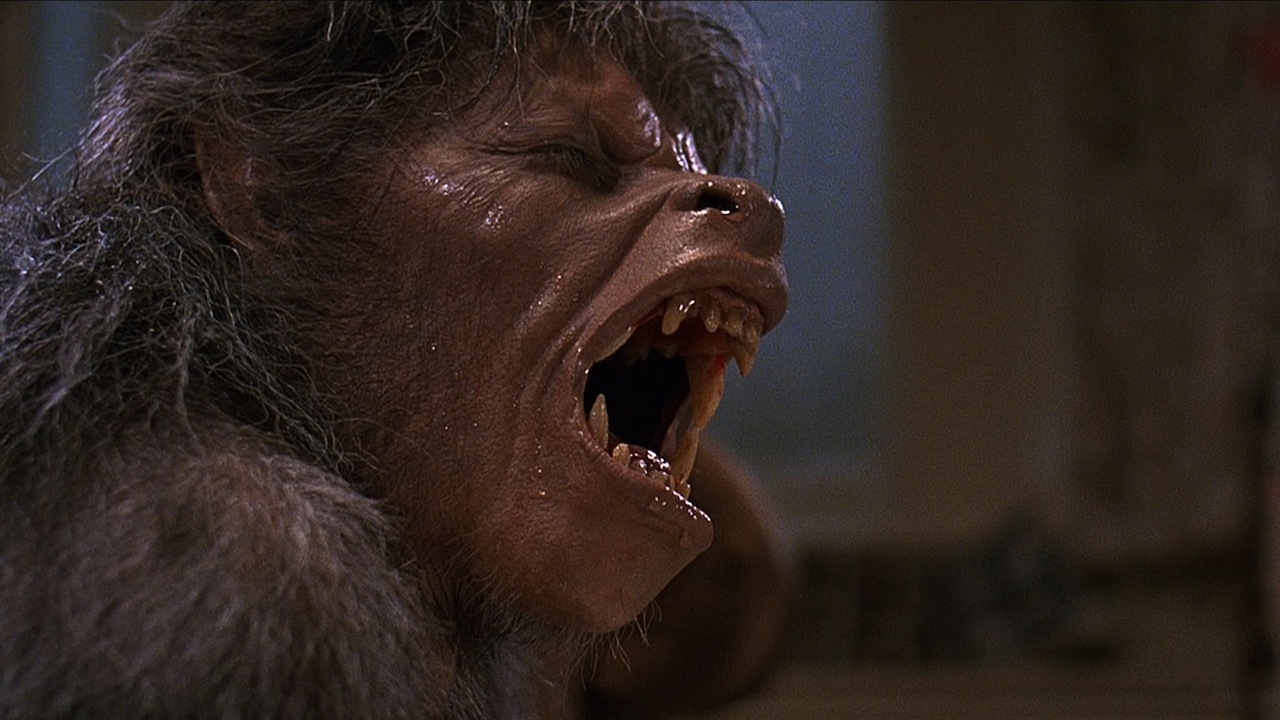
"American Werewolf in London is the biggest key influence. John Landis is, I think, probably one of the best filmmakers ever – he's an extraordinary filmmaker! An American Werewolf in London, I have probably seen that movie maybe 100 times now, and it never gets old. It is just genius and brilliantly shot. It's one of the best scripts ever. It's really funny. It's quite dated now, but it still carries itself very well. We've got a very kickass music track going all the way through The Quarry, and that was very much taken from the idea of An American Werewolf. It just has some fantastic music tracks – Bad Moon Rising, and all of that good stuff. It carries the movies really well, it is so good.
"We did a lot of that. In fact, we've got this Ariana Grande song that plays throughout called Moonlight. We chose that very specifically because A) it's a really good track, but also B) because it has a slight '50s feel to it. There's this anachronistic feel to The Quarry. Because, while it's not set in the '80s, there's a distinct '80s feel to elements of it. And there's also very much a 50s feel to the Hackett's Quarry setting side to the game. And there's this contemporary feel with the modern teenagers, the dialogue, the relationships, and all that sort of stuff. An American Werewolf in London is huge, and a bigger influence than people might think – particularly with the way we shot The Quarry."
The Evil Dead 2
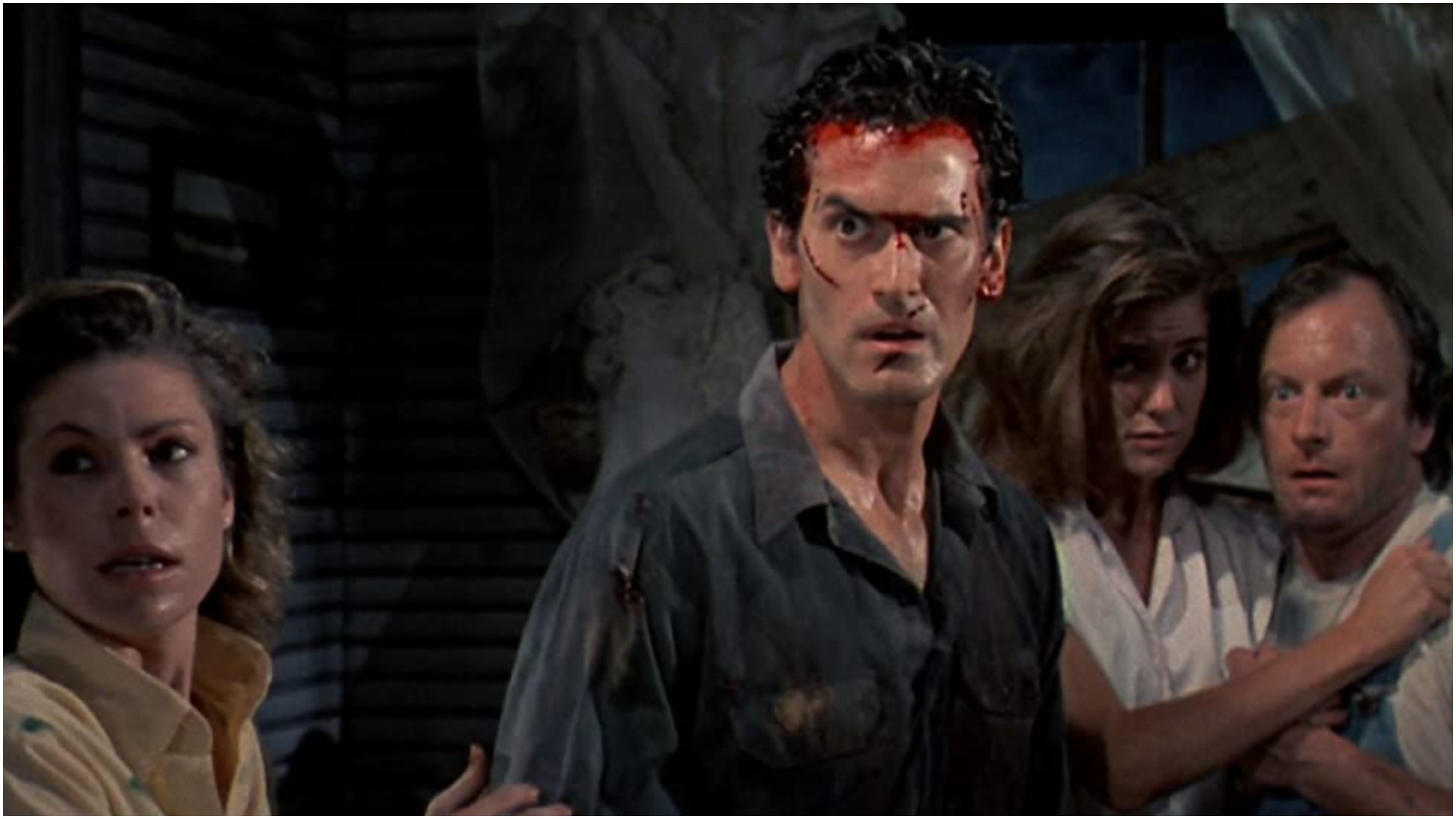
"The Evil Dead is another of my favorite films. I might not have seen it 100 times, but I've seen it a lot of times. There's Evil Dead and there's Evil Dead 2… and I vacillate between those in terms of which one is the best. Evil Dead was extraordinary but it's a little bit stringy in places, and Evil Dead 2 is the better film. Both are fantastic, and have really good humor throughout. We've taken that level of, not just the humor, but that kind of almost cartoonishness – there's no one who can actually chainsaw their hand off and still be okay, that's not a thing. It's stupid. But it's entirely doable in the Evil Dead.
"It is a cartoon injury, but it's still violent. It's still scary. And it's all very bloody, but it's got this bounce-back that makes it work. We thought about that while making The Quarry. We also thought about some of Sam Raimi's camera work too – he's still massively innovative, and has such a strong sense of where to place cameras to get the right shot for a scene. The Evil Dead was very much a part of our thinking, and you'll see that there's a bunch of POV shots in the game that we pretty much stole to get that same sort of feel [laughs]."
Deliverance
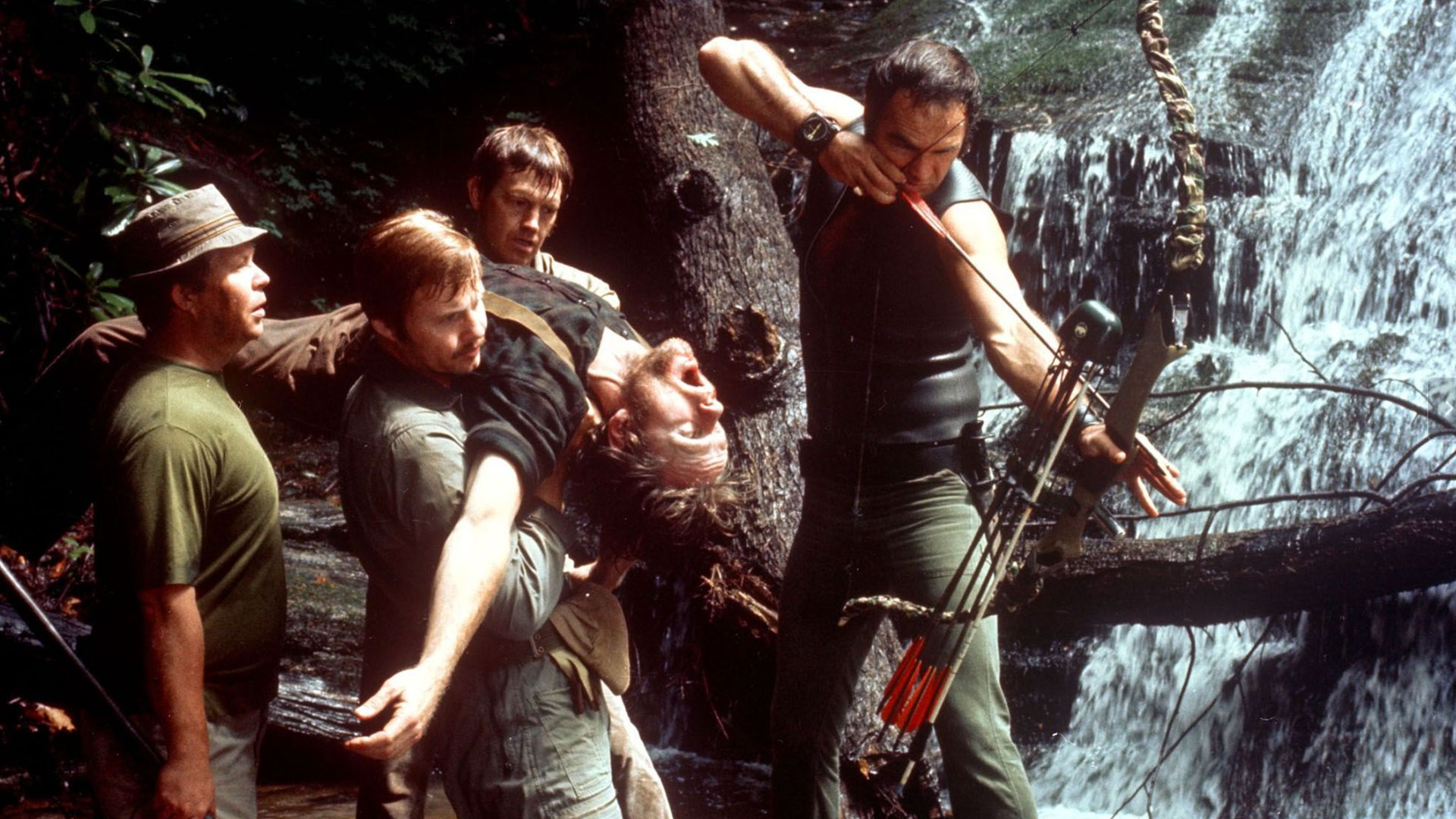
"There's two films that I'm trying to choose between [for the last one]. There's Deliverance and then there's Southern Comfort, which is a cracking film, but I think it has to be Deliverance. The feeling films like these capture so well is something like: there's a bunch of people up here, and they've got their own rule-set. The Hills Have Eyes is another version of this, but the Deliverance comparison to The Quarry is the closest, because in this the folk in question aren't freaks, they're just people with their own ruleset. It's like: you're in someone else's territory now, and you can't escape.
"All the stuff you've grown up with, all your safety mechanisms and ideas and morality and all that stuff? That's just gone. We really wanted to push down that route of: actually, it wasn't about them being bad, but we wanted to push the player down the route of suspicion and mistrust. Again, without kind of giving too many spoilers away, not everything is as it seems. Deliverance might not be as fun to watch as, say, American Werewolf or Evil Dead, or even something like Friday the 13th, but it does have a real menace to it, and we wanted to go and get that there. For all of the lightness with these things, we still want it to be, you know, a scary thing."

- The competition closes on Thursday, June 30, 2022. By taking part, you agree to be bound by the competition rules: http://www.futureplc.com/competition-rules/. Entries must be received by midnight on June 29, 2022 (UK time). Open to UK and US residents aged 18 years and over. There will be one winner, entitled to the aforementioned prize package. The prize is non-transferable and non-refundable. There is no cash alternative

Josh West is the Editor-in-Chief of GamesRadar+. He has over 15 years experience in online and print journalism, and holds a BA (Hons) in Journalism and Feature Writing. Prior to starting his current position, Josh has served as GR+'s Features Editor and Deputy Editor of games™ magazine, and has freelanced for numerous publications including 3D Artist, Edge magazine, iCreate, Metal Hammer, Play, Retro Gamer, and SFX. Additionally, he has appeared on the BBC and ITV to provide expert comment, written for Scholastic books, edited a book for Hachette, and worked as the Assistant Producer of the Future Games Show. In his spare time, Josh likes to play bass guitar and video games. Years ago, he was in a few movies and TV shows that you've definitely seen but will never be able to spot him in.


